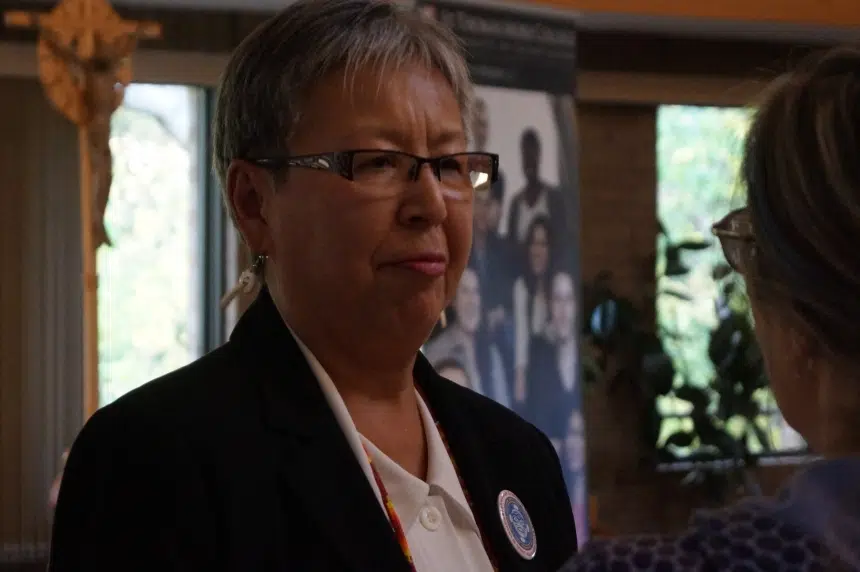Saskatchewan Senator Lillian Dyck challenges the RCMP and the federal government to release statistics proving that 70 per cent or crimes against aboriginal women come at the hands of aboriginal men.
“They’ve made that conclusion but they don’t have any data anywhere that backs it up,” Dyck said while in Saskatoon for a missing and murdered aboriginal women panel.
“The RCMP is an arm of the federal government … and there’s a bit of a conflict of interest there. (The federal government) probably pressured the RCMP to back them up … I don’t think it’s true, someone should challenge them to release that data.”
The RCMP released a report showing that between 1980 and 2012, 1,181 aboriginal women were murdered or went missing, and they describe a list of contributing factors. However, it does not show the 70 per cent statistic.
For Dyck, the lack of transparency coming from the RCMP Commissioner Bob Poulson and Valcourt is more reason to call for a national inquiry, to get down to the truth about why aboriginal women and girls are so vulnerable. Dyck believes the vulnerability stems from attitudes born in the residential school system and they continue to linger.
“Two of the biggest factors are racism and sexism which we don’t really talk about – you mix sexism and racism together then you have a potent cocktail that makes aboriginal women and girls vulnerable so mostly men feel they can pick on them, assault them and make sexual advances because you talk to young women and they’re fearful when they walk down the streets they have to be careful because our society has allowed this image of aboriginal women,” Dyck said, adding residential schools taught generations that aboriginals were an inferior race.
The horrors of the residential schools system were laid out in the Truth and Reconciliation Commission (TRC), and one of the many recommendations from the TRC report asks for a national inquiry. But rather than making aboriginal issues and election issue, Dyck said First Nations may have a bigger impact on provincial governments.
“Missing and murdered indigenous women should be an election issue but not many aboriginal issues are election issues because we don’t represent a very large number, but here in Saskatchewan and Manitoba we do so maybe provincially there’s more we can do on that level,” Dyck said.
A lot of things can change after Canadians head to the polls on Oct. 19, and if there is a change in government, Dyck hopes they work to gather evidence and figure out why so many aboriginal women are murdered or go missing.
“Right now we don’t really understand all the factors and one of the things the TRC really makes clear is that we need to educate all Canadians because we’ve all been taught the mistruth about aboriginal people in Canada; and if we get to that I think then a change will start to happen,” she said.







